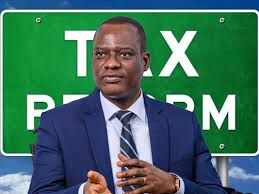The organized labour has firmly rejected the federal government’s proposal of a ₦62,000 or ₦100,000 minimum wage for Nigerian workers.

In an interview with Channels Television on Monday, Chris Onyeka, the Assistant General Secretary of the Nigeria Labour Congress (NLC), labeled the proposed wages as “starvation wages.”
Onyeka stressed that the NLC will not accept the government’s offer of ₦62,000, maintaining that their demand for a living wage remains at ₦250,000.
“Our stance is unequivocal. We have never considered accepting ₦62,000 or any wage that is insufficient for Nigerian workers. We will not negotiate a starvation wage. We have never contemplated ₦100,000, let alone ₦62,000. Our demand is still ₦250,000, which we believe is a reasonable concession to the government and other social partners. This demand is based on the everyday realities of the marketplace and the cost of essential goods like rice, yam, and garri,” Onyeka stated.
The one-week deadline given to the Federal Government to revise its proposal, which started on June 4, 2024, will expire by midnight on June 11, 2024.
Onyeka mentioned that if the Federal Government and National Assembly fail to address the workers’ demands by the deadline, organized labour will decide on resuming the nationwide strike.
“The responsibility now lies with the Federal Government and the National Assembly. Our demands are clear. They need to draft an Executive Bill for the National Assembly to pass a National Minimum Wage Act that meets our requirements. If this doesn’t happen, we have given the government a one-week notice to address the issues, which expires tomorrow. If there is no substantial response from the government, the labour unions will convene to decide our next steps,” Onyeka added.
When asked about labour’s response if the government insists on ₦62,000, he clarified, “We made it clear that we are suspending the nationwide indefinite strike. If the labour unions decide to lift the suspension, we will revert to our previous stance.”
Background on Minimum Wage Talks
After weeks of unsuccessful negotiations on a new minimum wage, the NLC and TUC, representing organized labour, initiated a nationwide strike last Monday to demand a new wage and the reversal of the electricity tariff hike.
The unions argued that the current minimum wage of ₦30,000 is inadequate to meet the needs of the average Nigerian worker, urging the government to propose a more realistic figure in line with current inflation.
However, the strike was suspended for five days after the labour leadership signed an agreement with the Federal Government to resume negotiations and determine a new minimum wage within a week.
This suspension followed a six-hour meeting between labour leaders and the National Assembly on Monday night in Abuja.
To expedite the discussions, the President instructed the Minister of Finance, Wale Edun, last Tuesday to present the cost implications of a new minimum wage within two days. President Tinubu also directed government representatives to collaborate with the organized private sector and sub-nationals to establish an affordable wage for Nigerians.
On Thursday, the finance minister, alongside the Minister of Budget and National Planning, Atiku Bagudu, presented the cost implications of a new minimum wage to the President at the Presidential Villa.
Prior to this directive, the finance minister had described the labour’s proposal as “unaffordable,” and the 36 state governors had also deemed the union’s demand unsustainable.
However, by Friday, June 7, 2024, labour and the government had not reached an agreement. While the labour unions had reduced their demand from ₦494,000 to ₦250,000, the government had only increased its offer from ₦60,000 to ₦62,000.
Both sides have submitted their reports to the President, who is expected to make a decision and send an executive bill to the National Assembly to enact a new minimum wage law.
Read also:
- FG Repairs Vandalised Second Niger Bridge, Enhances Security
- Apostle Suleman Gives N25M to Struggling Young Man After His Mother’s Emotional Plea
- James Brown Shares Bobrisky’s Instructions During Kirikiri Visit
- Excitement as Activist VeryDarkMan is Released from Prison
- Mercy Aigbe Responds to Kazim Adeoti’s Photos from US Event with First Wife
- Chef Leaves Many Drooling with Her Innovative ‘Garri Pizza’
- Tinubu Names Abuja Road After Chinua Achebe
- Burkina Faso’s Former Minister Receives Harsh Punishment for Embezzlement
- I’m not searching, I have boys servicing me – Korra Obidi says
- Why being single is good in the entertainment industry – Korra Obidi
- Portable receives $1 million cash gift from caucasian fan on plane
- Maureen Esisi calls out ex-husband’s parents, reveals she and Blossom Chukwujekwu are still technically married
- Lady in pain as married man she had 18 abortions for dumped her to relocate abroad with his family
- Lady vents as mom demands share of N1.5M cash gift from dad
- How to Get your Tax Identification Number in Nigeria Online (Video)
- Money changer sobs uncontrollably as club girls mistake him for a yahoo boy, steal 3 bundles of money
- Portable flaunts stacks of dollars barely 2 days in America



